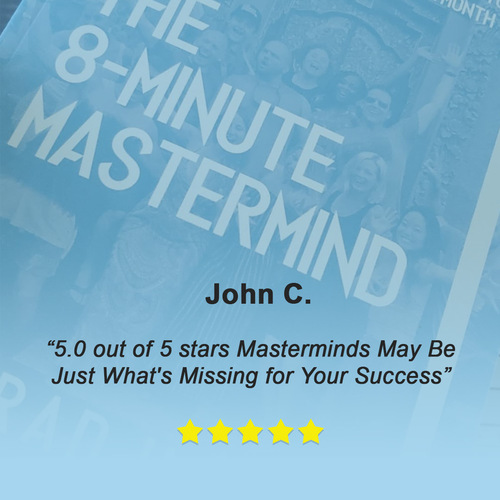Power of the Mind in Health and Healing

Introduction
Whether you have an illness or are just looking for ways to improve your health and well-being, mindfulness can be one of the best tools that you have. The benefits of mindfulness are wide-ranging, and they can help everyone deal with illness in a more positive way.
Mindfulness helps you focus and prioritize.
Mindfulness is a state of active, open attention to the present moment. When you practice mindfulness, you bring your full awareness to the current moment. You observe your thoughts and feelings from a distance, without judging them good or bad. Instead of letting your mind wander off into the past or future, you stay focused on what's happening right now in this very moment–and that helps keep stress at bay.
Mindfulness helps improve focus because it trains our brain to stay alert while paying attention to one thing at a time (like driving on autopilot). It also improves concentration by giving us better control over our emotions; when we're feeling stressed out about something in particular that's causing us anxiety, practicing mindfulness can help us deal with those feelings more effectively than if we weren't practicing it regularly at all!
It can help you cope with your illness.
-
Mindfulness can help you become more aware of your thoughts and feelings.
-
It can help you focus on the present moment, rather than dwelling on the past or worrying about the future.
-
This can make it easier for you to accept your illness, as well as its limitations and side effects–and it may even decrease anxiety about what might happen in the future (like whether or not treatment will work).
Mindfulness can break harmful habits.
Mindfulness can help you break harmful habits. When you are mindful, you are more aware of your actions and how they affect yourself and others. This awareness can help break bad habits like smoking or overeating by making them less automatic and more deliberate. A mindful approach to eating also helps people lose weight because they're more aware of what they're putting into their bodies and how much they're eating at each meal.
Mindfulness helps you control your stress.
Stress is a normal part of life. It can be good or bad, depending on how you manage it. Stressful situations are unavoidable, but the way we react to them can make all the difference in how we feel about them and whether or not they have long-term effects on our health and well-being.
If you're feeling stressed out and overwhelmed by life, mindfulness may help you manage your stress better by helping you become aware of what's going on in your mind and body at any given moment–and giving yourself space from those thoughts so that they don't control how much energy (or lack thereof) goes into dealing with them.
It can change how you experience pain.
Mindfulness can help you understand pain.
Mindfulness is the practice of paying attention to your thoughts and feelings in the present moment, without judgment. When you're mindful, you're aware of what's going on around you–and inside of you–without judging it or trying to change it. It's about being nonjudgmental about yourself and others rather than reacting emotionally based on past experiences or expectations for how things should be in the future.
Mindfulness can help ease your discomfort with chronic pain by allowing yourself time to process what is happening physically as well as mentally so that instead of getting caught up in worrying about how much it hurts or how long this episode will last (or both), instead turn toward being present with whatever sensations may arise during these times: throbbing aches; sharp jabs; dull aches; tingling numbness…whatever! By giving yourself space between physical sensation and emotional reaction, mindfulness allows us room for growth through reflection and understanding rather than dwelling on negativity which only serves further exacerbate our suffering over time!
Mindfulness will help you understand yourself better.
Mindfulness can help you understand yourself better. It will help you become aware of your thoughts, feelings and emotions. This can be a useful tool for anyone who wants to make changes in their life but has difficulty identifying what needs changing or how they might go about doing so.
Mindfulness also allows us to observe our reactions without judgement; it helps us see things objectively without getting caught up in the story we have created around an event or situation. This allows us time to think before reacting which may lead to better decision making when dealing with stressful situations (e.g., work).
Mindfulness has been found useful for managing pain because it teaches us how not only accept but also tolerate discomfort without trying desperately avoid it through distraction or focus on physical sensations such as breathing patterns rather than focusing exclusively on thoughts about pain itself
It can improve the way that you relate to others.
Mindfulness can help you improve the way in which you relate to others. It helps you be more present with others and less judgmental, as well as helps improve your understanding of them. This leads to greater empathy and less reactivity.
Mindfulness can help you sleep better.
Mindfulness can help you sleep better.
It can help you relax and reduce stress, which will allow you to drift off into a deep and restful slumber. It also teaches you how to let go of thoughts that keep you awake, so that when your body is ready for sleep, it will be able to do so without the interference of busy brain activity or racing thoughts. Finally, mindfulness gives us an opportunity to connect with our bodies by recognizing when we're tired–so if your mind keeps telling itself "I'm not tired yet!" but your body feels like it could use some shut-eye? Mindfulness gives us permission not only accept this feeling but act on it as well!
Everyone can benefit from being more mindful, especially when they have an illness or chronic pain to deal with.
Mindfulness is a way of living in the present moment. Mindfulness can help you deal with stress, sleep better and cope with illness. It's also great for breaking harmful habits like smoking or overeating.
Mindfulness will help you understand yourself better by helping you become more aware of your thoughts, feelings, bodily sensations and surroundings as they happen in each moment–not judging them as good or bad but simply observing them without judgment so that they pass through your awareness without leaving any residue behind that might disturb your peace of mind.
Conclusion
In conclusion, mindfulness can be a powerful tool in your quest to live a better life. It's not just about health and healing–it can help you live more fully in all areas of your life, from relationships with others to how you manage stress or pain. The benefits of mindfulness are wide-ranging and well-documented by science. The only thing holding you back is yourself!
#purpose #purpose #driven life #motivation #the purpose driven life review #the purpose driven life audiobook #life purpose #inspirational
Tim Moseley


